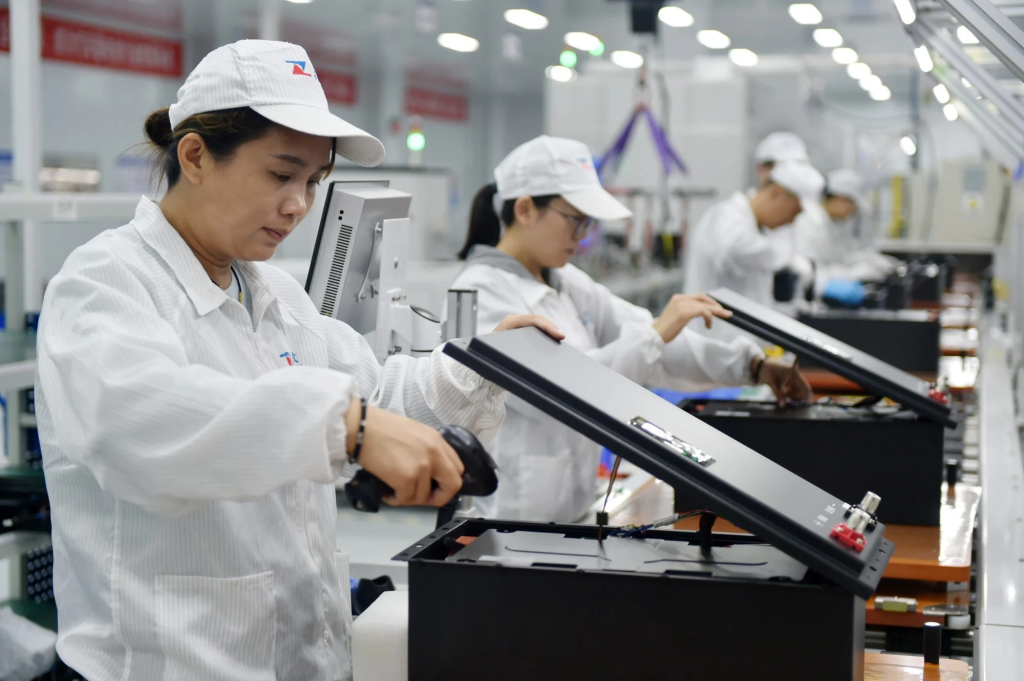
In Brazil, China will seek strategic allies to weaken sanctions and promote a new global financial system against the West
Beijing will focus on courting G20 countries to join its financial networks — to circumvent Western sanctions in a potential conflict with Taiwan — while the US and G7 will pressure these countries to comply with critical supply chain restrictions against the mainland. .
A new report studying G20 responses to a crisis in Taiwan finds that Beijing would have limited interest in using punitive economic policy against these countries, while the US and G7 countries would likely ask them to comply with sanctions.
Compiled by North American think tanks Atlantic Council e Rhodium Groupthe report was released a week before a high-stakes annual G20 meeting in Brazil, which Chinese President Xi Jinping and his US counterpart Joe Biden are expected to attend.
Do you have questions about the world’s biggest topics and trends? Get the answers with SCMP Knowledge — our new curated content platform with explainers, FAQs, analyzes and infographics brought to you by our award-winning team.
This year’s G20, which begins on Monday, is believed to be the last multilateral event Xi and Biden will participate in.
The meeting takes place amid considerable uncertainty about the future of Sino-American relations under the command of US President-elect Donald Trump — who began a trade war with China in 2018 as American leader.
Xi and Biden’s joint appearance would come days after the two met during the Asia-Pacific Economic Cooperation summit in Lima, Peru — in an in-person dialogue that the White House said on Wednesday would take place on Saturday.
The pair are ready to discuss controversial issues, ranging from Taiwan to US economic and technological restrictions against mainland China.
Taiwan remains one of the most dangerous flashpoints in the relationship, as Beijing has stepped up military actions around the island in recent years, citing Washington’s continued arms sales to the island.
The developments sparked widespread speculation about a more imminent conflict across the Taiwan Strait and fueled fears — in the region and beyond — that countries would feel pressured to choose sides among the superpowers.
It is unclear what Trump’s Taiwan policy will be in his new term. During his 2024 presidential campaign, he said Taiwan should pay the US for its defense, raising concerns about a possible reduced American commitment to the island.
That said, the president-elect’s cabinet picks so far include China advocates such as Marco Rubio — his nominee for secretary of state — who has called for continued U.S. support for Taiwan.
Beijing views Taiwan as part of China, which must be forcibly reunified if necessary.
Most countries, including the US, do not recognize Taiwan as an independent state, but Washington opposes any attempt to seize the autonomous island by force and is committed to supplying weapons.
The report stated that G20 countries would likely face calls from both China and the US to comply with their respective economic policies in a conflict scenario.
In case of a “moderate climbing”he said, the US or the G7 would make greater requests to its treaty allies, such as South Korea and Australia, to join together to act against China, while Beijing would refrain from using punitive policy tools.
If there were “high climbing”the US or G7 would increase pressure on G20 nations to adhere to critical supply chain restrictions against China, while Beijing would openly call for these nations to join its financial networks to circumvent American sanctions.
According to the report, China would also likely try “divide or separate” the G7 countries to avoid a collective response.
The report concluded that maintaining economic ties with China would be an option for “lower cost” for the G20 nations in the scenario “moderate”while maintaining Western sanctions would be an option to “lower cost” for them in the scenario “alto”.
He analyzed the likely responses of three G20 countries — South Korea, Brazil and Indonesia — and noted that Brazil and Indonesia were unlikely to align strongly with either side due to their economic interdependencies.
However, some silent compliance may emerge from Brazil and Indonesia due to the economic policy implemented by China and the US.
Brasília would likely distance BRICS — an association of major emerging markets of which it is a founding member — from the conflict, but would marginally increase yuan-dominated trade with China.
Indonesia, while also likely to begin de-risking its trade ties with China, would be more reluctant to sever supply chain collaboration with Beijing, the report added.

South Korea is a more complicated case, as it would be more aligned with the West than other G20 countries, but would likely advocate exceptions in sectors with high demand from China, such as electronics.
The US has stepped up measures with allies to de-risk economic ties with China, citing national security threats posed by its rival, including tightening semiconductor export controls and building its own supply chain network to exclude Beijing .
China controls more than 60% of the world’s rare earth elements.
US allies in the G20, including Australia, South Korea and Japan, were urged to join Washington’s efforts, while countries such as Indonesia — the world’s biggest producer of nickel, a key material for battery production — helped boost the Beijing supply chain.
Beijing has also stepped up efforts to make its economy more resilient to Western restrictions by accelerating the internationalization of the Chinese currency and expanding its use in bilateral trade, especially with countries in the Global South.
During last month’s BRICS summit in Russia, Xi called on the group to lead financial reforms “urgent” as part of a larger attempt by Beijing to promote alternative financial systems to reduce dependence on the US dollar.
Beijing is expected to continue pressing this point at next week’s G20 meeting, which will focus on global financial reforms.
Report co-author Logan Wright said China could develop more financial tools to ease Western sanctions over the next five years and continue offering “positive incentives”such as increasing its investments in G20 countries while seeking to weaken US restrictions.
“There is probably not much China can do to slow down or stop the process of de-risking or decoupling”he added, “but there is much it can do to monitor this process, slow it down and try to weaken international alignment.”
With information from the South China Morning Post*
Source: https://www.ocafezinho.com/2024/11/14/como-a-china-pretende-usar-o-g20-para-desafiar-as-sancoes-ocidentais/

